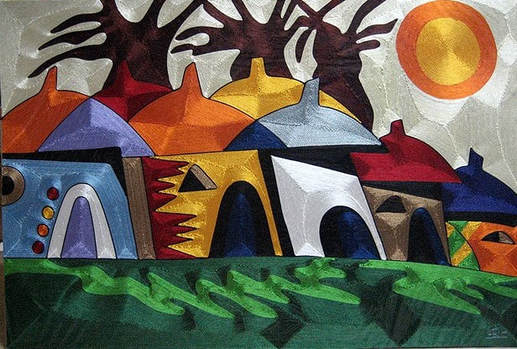 A piece from Yeb silk art by Emmanuel and Gloria Yeboah
A piece from Yeb silk art by Emmanuel and Gloria Yeboah A similar fate seems to be eminent for William Ruto's political ambitions. He seems to have decided that to become president, he needs to play by the rules of daddy's (and mummy's) boys, (Raila, Muigai, Gideon). However, he also wants to appeal to Kenyans by portraying himself as one of us, thereby adopting the tag "hustler." However, trying to do both at the same time leads to the contradiction we see in Ruto's relationship with the Kenyan university.


 RSS Feed
RSS Feed
